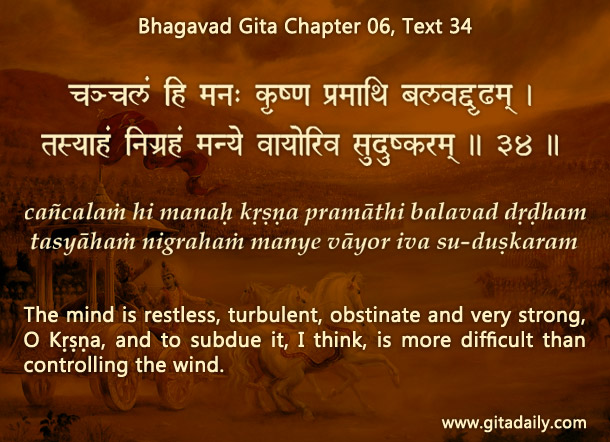Why we need to transform pain – Suppose we catch an infection. If we aren’t careful, we will transmit it to others.
While we are usually aware that physical infection is transmissible, we may not be aware that so is emotional affliction. This transmissibility is conveyed by the saying: hurt people hurt people. What does it mean? That when people are hurt, their loved ones naturally feel hurt? Possibly; it usually means something much more. When people are hurt, they themselves act in hurtful ways: they may lash out at others verbally or even physically. And they may lash out not just at those who have hurt them, but also unwittingly at those who want to help them. Worse still, they may even lash out indiscriminately, at anyone who is within their power to hurt. Worst of all, though they may not be normally malevolent, hurt can make them act in malevolent ways — regularly, habitually, self-righteously.
Inside us all is a mind that can be mad and can drive us mad, as the Bhagavad-gita (06.34) cautions. This devilish mind can subtly and insidiously make us believe: “If I am hurt, what right does anyone have to be unhurt? They too deserve to be hurt; and I am only giving them what they deserve.” That’s how we may end up becoming not just pain transmitters, but also pain multipliers.
How can we avoid degenerating into malevolence? By transforming our pain. How? By finding meaning and purpose in our pain. Meaning helps us accept the painful situation. And purpose helps us progress through that situation.
Gita wisdom stands ready to equip us with a worldview that infuses our entire life with profound meaning and powerful purpose. By assimilating and applying Gita wisdom, we all can learn to transform whatever pain we encounter.
One-sentence summary:
Pain that is not transformed ends up getting transmitted — seek meaning and purpose to transform your pain.
Think it over:
- How is pain transmissible?
- Do you know anyone who has become a pain transmitter or pain multiplier?
- How can we transform pain?
***
06.34: The mind is restless, turbulent, obstinate and very strong, O Krishna, and to subdue it, I think, is more difficult than controlling the wind.


Hare Krsna dandvat pranaams prabhu
Beautiful explanation, gita daily is an amazing selfless service that to have offered to us all. Koti koti dandvats to you.
I am very grateful for this.
Hare Krsna
Thank you for your heartfelt appreciation – I am humbled and grateful to be an instrument in sharing the Gita’s wisdom.